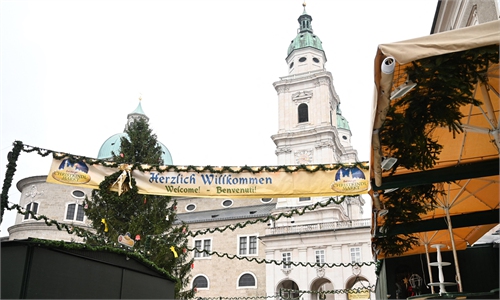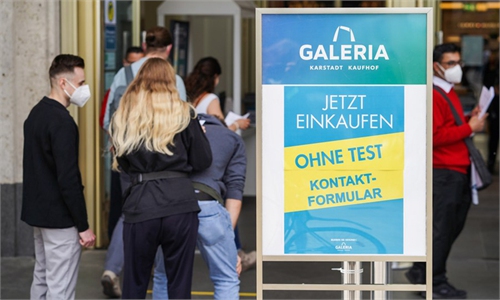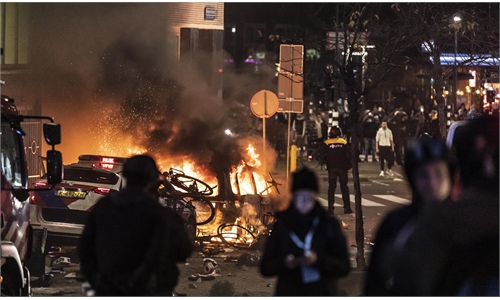Fresh COVID-19 spike in Europe
Countries relax restrictions despite experts' warnings

A visitor leaves the British Museum in London, Britain, Dec. 7, 2021.(Photo: Xinhua)
Some European countries have seen a rising number of COVID-19 infections again after further relaxations of pandemic restrictions. More experts warned of severe consequences if they give up all restrictions too early, especially with the spread of a more transmissible subvariant of Omicron.
On Tuesday, Dutch Health Minister Ernst Kuiper announced that the government would further scale down COVID-19 rules from next Wednesday.
The mask obligation in public transport will disappear. The advice to work from home will be canceled. A negative test is no longer required at events with more than 500 participants.
In Britain, from 4 am local time on Friday, all COVID-19 travel restrictions will be lifted, including the passenger locator form for arrivals into the country, as well as all tests for passengers who do not qualify as vaccinated.
France has also proceeded to lift restrictions on the mandatory vaccine pass and masks in indoor areas on Monday.
Germany could see the removal of most COVID-19 protection measures from Sunday. People will only be required to wear masks in hospitals, care facilities, and public transport.
Coronavirus infections are rising in all four UK regions for the first time since the end of January, with Scotland already reporting record-high infection data, according to the latest estimates from the Office for National Statistics.
In the Netherlands, over the past week the number of people admitted to hospital rose sharply by 14 percent, and the number of patients in ICUs increased by 6 percent.
The number of infections remained high in the country. The National Institute for Public Health and the Environment (RIVM) reported on Tuesday that for the past seven days, 429,252 new positive tests came in.
Krunoslav Capak, director of the Croatian Institute of Public Health, said that the new BA.2 variant, a subvariant of the Omicron virus, was spreading faster in Western European countries.
With the arrival of warmer weather and the fall of new cases, people relaxed, thinking that the epidemic was over, he added.
"That is not correct. The virus is still here, and the numbers are still high. We need to be careful and think that the virus is still among us and can be dangerous again," Capak said. Therefore, "everyone still needs to adhere to epidemiological measures."
Agencies



